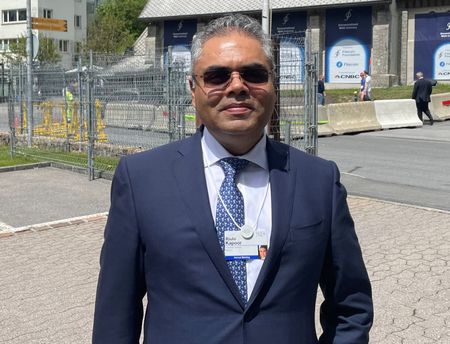By Aditya Kalra
DAVOS, Switzerland (Reuters) – Investcorp will deploy $400 million into Indian school infrastructure and warehousing, as it seeks to expand investments in the South Asian nation, its Co-Chief Executive told Reuters on Monday.
Bahrain-based Investcorp has already invested $500 million in 13 companies in India, including online retailer FreshToHome and ASG Eye Hospitals.
It also has a $400 million fund for private equity investments in India, which says it has the world’s fastest growing startup ecosystem.
Investcorp now has plans to deploy $400 million over four years on real estate in India, Rishi Kapoor said in an interview at the World Economic Forum in Davos.
The two segments it will focus on will be school infrastructure and a warehousing sector which is booming thanks to a rapid expansion of e-commerce in the country with a population of 1.4 billion people, Kapoor said.
“We have created a new investment thesis around investing in school, education infrastructure,” he said.
“The middle income Indian parent will tighten their belt in every area other than education for their kids. So that underlying space is very attractive.”
India is seeing unprecedented growth in e-commerce and logistics, with companies such as Amazon and Walmart’s Flipkart committing billions of dollars in investment.
Another sector booming in India is clean mobility, and Investcorp said it will target investments in clean energy and climate tech, although its plans are yet to be firmed up.
The separate $400 million fund for private equity investments in India which Investcorp has previously announced will be used to target sectors including health and wellness and consumer technology, Kapoor added.
“It’s actually a good time to deploy capital, we are looking at a few opportunities now,” he said, while declining to name any specific companies.
Global private equity firm General Atlantic told Reuters on Sunday it plans to plough $2 billion into India and Southeast Asia over the next two years, after falling valuations made the region’s startups more attractive.
(Reporting by Aditya Kalra in New Delhi; Editing by Alexander Smith)








